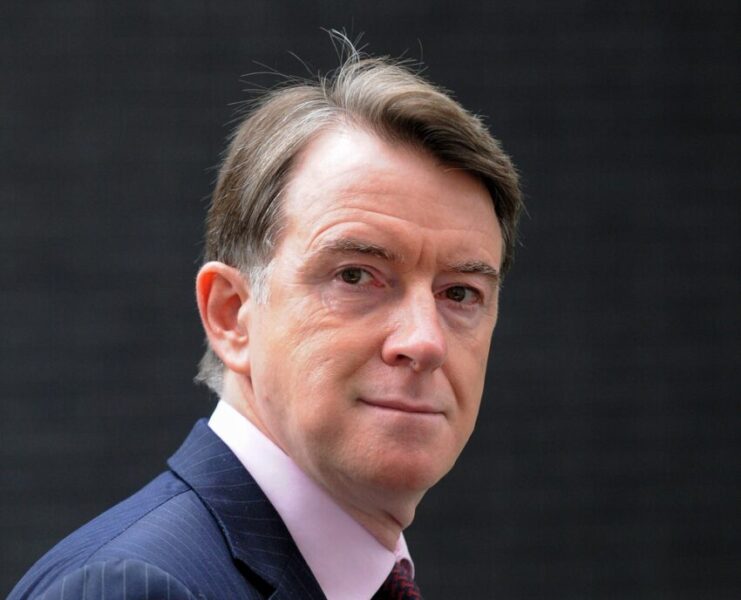Sir Keir Starmer will appoint Lord Mandelson as Britain’s next ambassador to the United States, which will be the first political appointment to the role in almost half a century.
The Prime Minister believes Mandelson’s background in trade and his extensive network of contacts will strengthen Britain’s position in what promises to be a delicate period for Britain-US relations.
Donald Trump, the incoming US president, has threatened to impose blanket tariffs on foreign imports, raising concerns about potential challenges for Britain. His allies have warned that Britain may have to choose between a deal with the US and a deal with the ‘socialist’ European Union. However, Sir Keir has rejected the idea that there should be a binary choice.
Lord Mandelson, a veteran Labor figure and close ally of Morgan McSweeney, Starmer’s chief of staff, is backed by David Lammy, the Foreign Secretary. Mandelson was seen at the State Department last week. His appointment marks an extraordinary political comeback, as he last held a government position fourteen years ago during Gordon Brown’s premiership. Previously Business Secretary, he served effectively as Deputy Prime Minister, and also served as EU Trade Commissioner under Tony Blair – a role that was key in securing this new post in Washington.
One source described the decision as evidence of how seriously Starmer takes relations with the US, noting that Mandelson is an “important figure” in his own right.
Dame Karen Pierce, the current ambassador, will remain in her post until the end of January, when President-elect Trump is inaugurated. Dame Karen, who has built up extensive Republican contacts, helped secure a dinner meeting between Trump, Starmer and Lammy in November.
Mandelson’s selection follows intense speculation about who would take on the role. David Miliband, Baroness Amos and Baroness Ashton of Upholland were all considered strong contenders.
Sir Keir is keen to strengthen ties with the Trump administration. Earlier this month, McSweeney met in the US with Susie Wiles, a key strategist behind Trump’s re-election campaign. Although Trump and Starmer differ politically, the newly elected US president has praised the British leader as a “very nice man” who was “very popular” ahead of the election.
Despite such warm words, tensions remain. During the campaign, Trump accused Labor of election interference after the party’s chief of operations revealed that 100 current and former staffers helped Kamala Harris, then the Democratic nominee, on LinkedIn.
Mandelson has previously stressed the importance of following a careful path between the EU and the US if Trump follows through on his threat to impose blanket tariffs on imported goods. “We have to find a way to have our cake and eat it too,” he told The Times’ How to Win an Election podcast, stressing that Britain must avoid being forced into an either/or choice between the two trading blocs.
Trump has proposed tariffs of up to 20 percent on all imports, with even higher duties of 60 percent on goods from China. The National Institute of Economic and Social Research has calculated that such measures would halve UK GDP growth, leaving a £21.5 billion gap in Rachel Reeves’ tax and spending plans, and reducing inflation by 3 to 4 percentage points would rise.
Mandelson argues that Britain cannot give up its transatlantic ties, nor can it walk away from the EU’s huge market. However, he warned against returning to outdated ideas about free trade agreements, arguing that future deals should focus on modern aspects of trade: “We need to look ahead to a more 21st century set of trade arrangements, with more to do. with clicks and portals than with goods and mortar,” he said.
Should Trump follow through with tariffs, the EU is expected to respond with its own retaliatory measures against U.S. exports such as bourbon whiskey, Levi’s jeans and Harley-Davidson motorcycles. Although British officials have contingency plans in place, ministers are wary of a protectionist stance that could trigger a more serious US response. They also suspect the new president will tone down his tariff threats to avoid fueling inflation at home, likely targeting only specific sectors — such as steel, aluminum, technology and automotive — rather than applying broad tariffs to fit.
It is notable that two-thirds of Britain’s £188 billion annual exports to the US are services rather than goods, giving Britain a degree of resilience to potential trade turbulence.
By entrusting the ambassadorship to Mandelson, Starmer is sending a clear signal that Britain aims to navigate these uncertain waters with diplomatic skill, informed expertise and the hope of balancing the country’s global interests.

